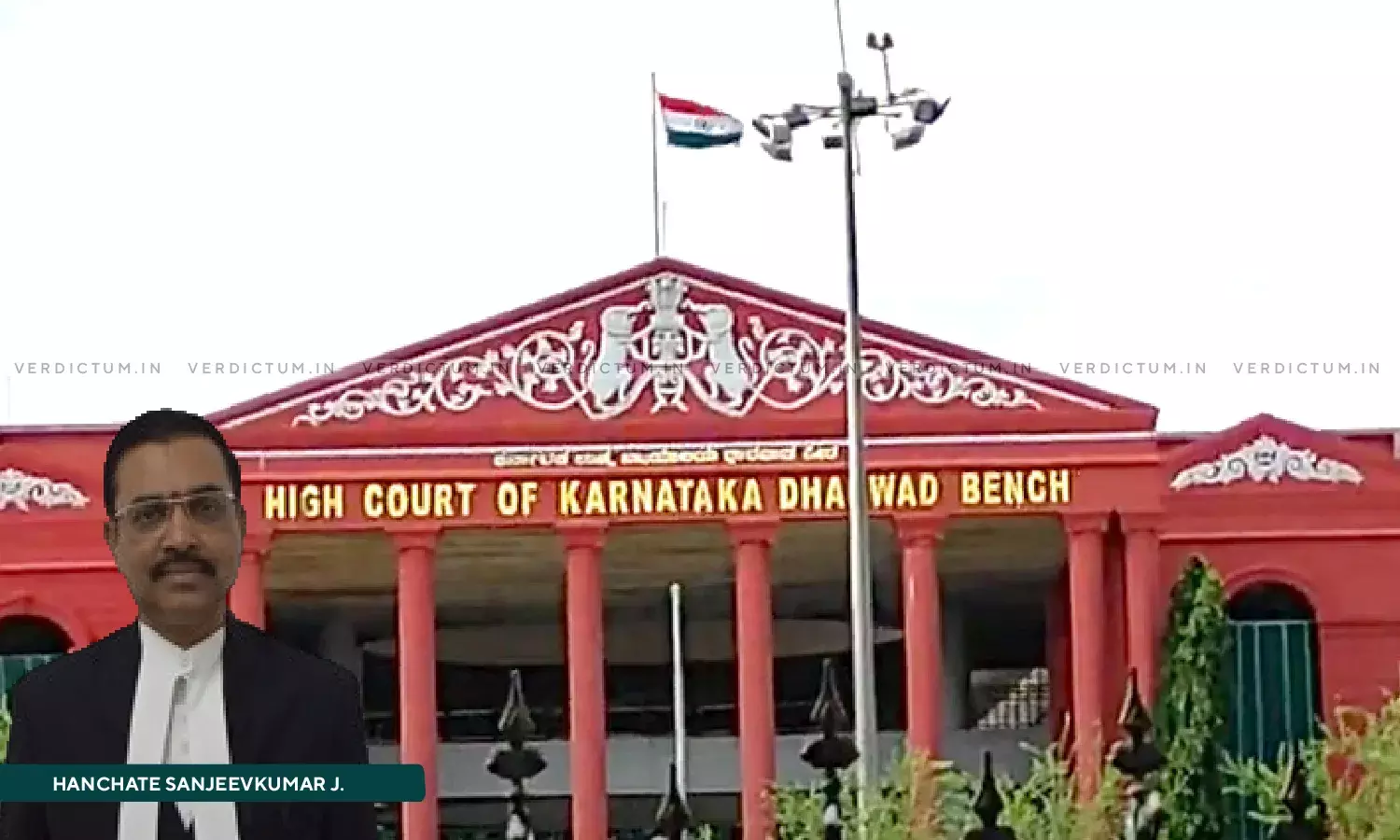Just Believing Certificate Of Doctor Holding That Will Is Proved Not Acceptable: Karnataka High Court

The Karnataka High Court held that, just believing the certificate of the Doctor holding that the Will is proved, is not acceptable.
The Dharwad Bench held thus in a Regular Second Appeal filed against the Judgment of the Fast Track Court by which it allowed an Appeal against the Judgment of the Civil Judge dismissing the Suit filed for declaration and consequential relief of injunction.
A Single Bench of Justice Hanchate Sanjeevkumar observed, “… execution of the Will is not conclusively proved by the plaintiff. Hence, the plaintiff has failed to prove the execution of the Will. … Accordingly, I answer substantial question of law No.1 in the negative by holding that ‘just believing the certificate of the Doctor holding that the Will is proved’, is not acceptable one and accordingly execution of the Will is not proved.”
The Bench elucidated that, just because legal requirements are complied with, that cannot in toto prove execution of Will, unless the other surrounding suspicious circumstances are proved to have been removed by the propounder of the Will.
Advocate Shivraj S. Balloli appeared for the Appellants while Advocate B.S. Kamate appeared for the Respondents.
In this case, the Plaintiff filed an original Suit for declaration and permanent injunction by pleading that the Suit properties were agricultural lands. Originally the said properties were standing in the name of the Plaintiff’s brother-in-law and in the family partition, the same were allotted to his brother-in-law. He died in 1996, leaving behind his wife namely Annapurna and hence, her name was entered in the revenue records. The Defendants were sisters of the deceased and the Plaintiff was Annapurna’s brother. He was looking after the land and her health. It was pleaded that the relations of the deceased and Annapurna with Defendants were not cordial.
Annapurna was suffering from ill-health during her lifetime because of kidney problem, diabetes, and hypertension. Hence, she was admitted to the hospital by the Plaintiff and she expressed to Will away the properties. In 2000, she executed her Will in the presence of attesting witnesses, bequeathing the properties in Plaintiff’s favour. Resultantly, the Plaintiff filed a suit for declaration of his ownership, however, the Trial Court after opining that the entire process of making the Will is unnatural one giving rise to suspiciousness, disbelieved the Plaintiff’s case and dismissed the Suit. He then filed an Appeal before the First Appellate Court and it set aside the Trial Court’s Judgment. Being aggrieved, the Defendants filed the Second Appeal.
The High Court in the above regard, noted, “… Will is legal declaration of the intention of the testator to bequeath his property to the propounder to be carried into effect after his death. Therefore, it is also a burden on the propounder to prove that the testator had intention to bequeath property by placing circumstantial evidence.”
The Court further said that it is not only sufficient just because legal requirement as per Section 68 of the Indian Evidence Act and Section 63 of the Indian Succession Act, are complied with that to hold that execution of will is proved, but also suspicious circumstances shall have to be removed.
“As held above compliance of legal requirement is only first step towards proving execution of Will. … Therefore, on these two circumstances that the deceased was in ICU with the support of external oxygen and drips was injected and was on ventilator, hence it is highly improbable to believe that the deceased has given instructions for preparation of Will”, it added.
The Court remarked that mere production of certificate is not sufficient, but Doctor ought to have been examined before the Court, to prove the mental status and health condition of the deceased, whether she was able to give instructions for preparation of the Will and hence, the Plaintiff being propounder has failed to prove the execution of Will.
“The Will is solemn document. The intention of the testator to execute the Will shall have to be proved beyond reasonable doubt for the reason that by a document of Will property is conveyed to the propounder. The testator is in the abode of God. He cannot come to the living world to depose about his Will. Therefore, the propounder must prove execution of Will and intention of testator to Will away the property by removing all suspicious circumstances”, it also observed.
The Court said that, though the Plaintiff has proved compliance with the legal requirements while executing the Will, but has failed to remove the suspicious circumstances clouded while executing the Will.
“Just by compliance of legal requirements, it cannot be said that Will is proved. The other surrounding circumstances, which are suspicious in nature ought to have been removed by the plaintiff, but upon considering and appreciating the evidence on record, it is found that plaintiff has failed to remove all these suspicious circumstances in the preparation of the Will. … when this being the health condition revealed and when the deceased was in ICU, it is highly improbable to believe that the deceased has given instructions for preparation of the Will. This is one of the circumstances, to hold that the Will is not genuine one”, it held.
Moreover, the Court noted that when Annapurna was admitted to the hospital, it is highly impossible to believe that she also took the documents pertaining to the Suit Schedule lands along with her.
“While admitting a person in the Hospital, the paramount consideration would be to give attention to the patient, but not taking property documents to the Hospital. It is also one of the circumstances, to disbelieve the execution of the Will”, it enunciated.
Accordingly, the High Court allowed the Second Appeal, set aside the Fast Track Court’s Judgment, and confirmed that of the Civil Judge.
Cause Title- Vishwanath Nirveneppa & Ors. v. Umesh & Ors. (Neutral Citation: 2024:KHC-D:17899)


